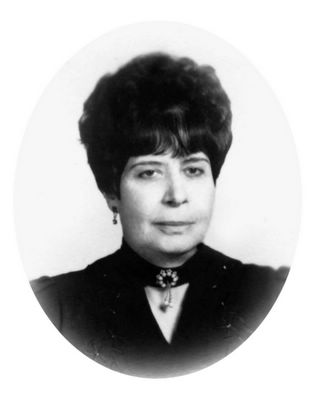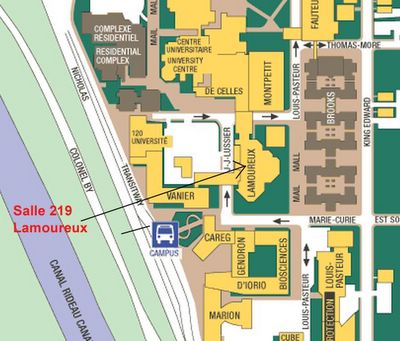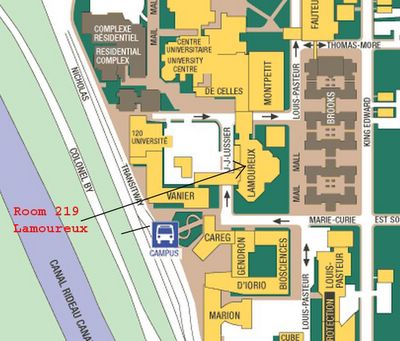May 16, 2005
The Wall Street Journal
THE NUMBERS GUY
By CARL BIALIK
(See Corrections & Amplifications item below.)
The Ottoman empire's deportation and mass killing of Armenians 90 years ago has become a tense issue for modern-day Turkey, which is being pressured by the European Union and some of its member nations to acknowledge the actions as genocide and open up its archives. And questionable numbers are a central part of the controversy.
Armenia argues that as many as 1.5 million Armenians were massacred. But Turkey says the number of dead was no more than 600,000 and possibly far fewer, and says the killings were justified as the product of armed conflicts that swept the region at the time. Scholars disagree on the number, and politics have obstructed honest statistical debate.
Some background: In the final years of the Ottoman empire -- which stretched from modern-day Turkey to much of Europe, northern Africa and the Middle East for more than 600 years -- a Turkish nationalist government led mass deportations and killings of Armenians. The violence lasted from 1915 until the early 1920s. Modern-day Turkey says the targeted Armenians, an ethnic minority present throughout the empire, had conspired with Russians in military operations against the empire, and that Armenians' revolutionary actions against the state spurred the mass deportations. Neither Turkey nor Armenia existed as nations during the violence, yet many Turks and Armenians line up today to defend their ethnic groups' historical records.
Immigration, trade issues and Turkey's Muslim majority -- which would be unique in the EU -- all are playing a large role in the run up to negotiations over membership, scheduled to begin in October. Against this backdrop, Turkey's historical dispute with Armenia has emerged as a potential stumbling block to membership. Heiki Talvitie, the EU's special representative to the South Caucasus, said recently at a press conference that Turkey's membership chances hinged in part on its relations with Armenia, according to Agence France Presse. Currently the countries have no diplomatic relations, and a major reason is the dispute over whether the Ottomans committed genocide. In the past decade, national legislatures of several EU members, including France, Italy and the Netherlands, have called the killings genocide. The U.S. and Turkey have not.
Disputed death tolls often follow genocide, according to Richard Garfield, a professor of nursing at Columbia University who has extensively studied mass killings. "The politicization of mortality data means that controversy and wide variations in estimates is the norm," Dr. Garfield says. He has worked in Liberia, Yugoslavia and Haiti, helping to improve death counts from modern-day conflicts.
Of course, I can't conclusively determine how many Armenians died. But I'll explain how scholars arrived at their estimates and why counting the dead is such a complex business.
Even in a political vacuum, counting the dead from nearly a century ago would be difficult. The killers had no reason to tally their victims, nor were international organizations in place to monitor the killing. So researchers have employed a brute tool: subtraction. They compare the number of Armenians before World War I with the number of survivors, who were spread across many surrounding countries. The difference in population becomes the number of victims. Of course, that doesn't account for newborns. It also includes deaths from disease and starvation, and while those deaths may be related to the killings, it's debatable whether they should be included in the overall count. "There really isn't the information to make an evidence-based consensus about how many people died," Dr. Garfield says.
As I noted in a previous column, even today in some parts of the world population counts are unreliable. All the more so, then, in rural areas of the Ottoman empire. Before the killings there were two parallel efforts to count the living -- one by the Ottomans, and one by the Armenian church -- but there are suggestions both groups' motivations may have affected their accuracy (more on that in a moment). So researchers trying to arrive at a death count adjust the population numbers, and those adjustments can have a big impact on end results. For example, count more prewar Armenians, and you'll get a higher death toll.
Tuluy Tanc, minister counselor of the Turkish embassy in Washington, cited death counts to me as low as 8,000 to 9,000, based on records Ottomans kept. But those doing the killing are hardly credible sources for a death toll. Mr. Tanc said he wouldn't insist on any particular set of numbers, saying his government has also recognized estimates up to 600,000. "There are many, many different sources," he says. The embassy's Web site cites figures between 500,000 and 600,000.
Justin McCarthy, a professor at the University of Louisville, arrived at a count of 600,000 dead by using official Ottoman population registrations. He adjusted for an assumed undercounting of women and children, a common problem in unsophisticated population counts, and arrived at a prewar population of 1.5 million for Armenians living in the eastern part of the Ottoman empire, known as Anatolia. Then he counted 900,000 survivors, based on official data from Russia and other countries where they settled. Dr. McCarthy published his findings in 1983; they were double many earlier estimates.
In 1991, Levon Marashlian, a professor of history at Glendale Community College in Glendale, Calif., published a critique accusing Dr. McCarthy of undercounting. Among his arguments: Armenians were likely undercounted because they hid from officials during the conflict. "If you hide, you're not taxed, you're not conscripted," Dr. Marashlian told me. And he says the Ottomans had their own reasons to undercount: "The Ottoman government had the motivation to show as few Armenians as possible, because the Europeans were pressuring Ottomans to institute reforms." He cites contemporary accounts that indicate the Ottomans were suppressing the numbers. Dr. Marashlian thus adjusts Dr. McCarthy's prewar estimates higher, and notes that the new results are closer to the Armenian church's own numbers. He concludes there were two million Armenians before the war, and he counts only 800,000 survivors, yielding an estimated total of 1.2 million dead.
Dr. McCarthy, in turn, says the Ottomans' adult male records were accurate, and disputes the Armenian church's numbers.
"The Ottomans in general were good counters," says Columbia's Dr. Garfield, but he adds that the Ottomans' population figures -- 1.5 million for the eastern part of the empire, after Dr. McCarthy's adjustments -- are suspect because a harbinger of genocide is the undercounting of the targeted group. "It's a step toward their nonpersonhood," he says.
George Aghjayan, an actuary who sits on the eastern region board of the Armenian National Committee of America, has also studied Dr. McCarthy's numbers in detail. He sent me a lengthy critique by e-mail. Among his arguments: Many Armenian men traveled outside the empire for work, which would contribute to undercounting of prewar adult males; and that Dr. McCarthy's technique for estimating Armenian survivors who ended up in Russia could lead to overcounting. The bottom line, according to Mr. Aghjayan: By undercounting prewar Armenians and overcounting survivors, Dr. McCarthy would undercount the dead.
An estimate of 1.5 million deaths has become the standard number in op-ed articles and news accounts of Armenian versions. That's the number on the Armenian National Institute's Web site. Rouben Adalian, director of the institute, concedes the number is an estimate that includes additional Armenian deaths related to the fallout of the original killings. He says he is confident that an estimate of more than one million "is very secure."
In the academic ideal, researchers could come together at conferences and meetings and work toward a consensus figure. But there is too much venom in the air. Armenian advocacy groups and some scientists I spoke to labeled Dr. McCarthy a Turkish apologist. He, in turn, speaks dismissively of some of his critics. "It's hard to say this is scholarly debate," he told me. "It's two sides presenting their position and not talking to each other." Meanwhile, Armenian scholars charge the Turkish government with limiting access to the Ottoman archives to some favored researchers, preventing new information from emerging and possibly helping to clarify the debate.
"I think 100 years from now, our debate about Armenian events will not be that different than it is today, because we have limited, conflicting information," Dr. Garfield says.
Some advocates and scholars I contacted for this article said pinning down exact numbers isn't necessary. Dennis R. Papazian writes on the Web site of the Armenian Research Center at University of Michigan-Dearborn, where he serves as director: "Does it really make the actions of Turkey better if they succeeded in killing only 600,000 Armenians and not 1.5 million? …In any case, it was genocide."
Are death tolls from today's conflicts bound to be disputed a century hence? It's a question worth asking in light of the continued Armenian controversy. Les Roberts, a research associate at Johns Hopkins University who has worked on counting the dead in Congo, Rwanda and Sierra Leone, painted a dismaying picture of current efforts. In an e-mail from Afghanistan, he mentioned two key challenges. First, "No one can agree on how to define the death toll from a conflict, just the deaths from intentional violence or all those that died because the violence occurred." (The Armenian numbers include both.) And, secondly, "No one is charged or expected to count the deaths from conflict. The [International Committee of the Red Cross] avoids the topic so that they can work with all sides. The press is bad at it. The public health crowd is very adverse to being killed so they rarely estimate deaths until conflicts are over."
But Columbia's Dr. Garfield was more hopeful, saying that methods have improved markedly; researchers, for instance, survey refugees in camps during ongoing conflicts about mortality among friends and neighbors. "I am optimistic about our ability to provide people with a better base," Dr. Garfield says. "It makes it harder to lie."
Corrections & Amplifications: An earlier version of this column included a map that incorrectly identified the borders of the Ottoman empire.
Note: Above are excerpts from the article. The full article appears
here. Clarifications and comments by me are contained in {}. Deletions are marked by [...]. The bold emphasis is mine.
Labels: Armenian Genocide Deaths




